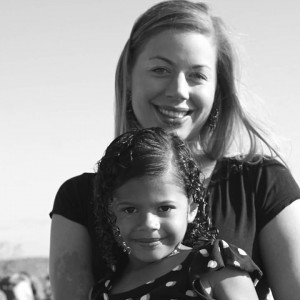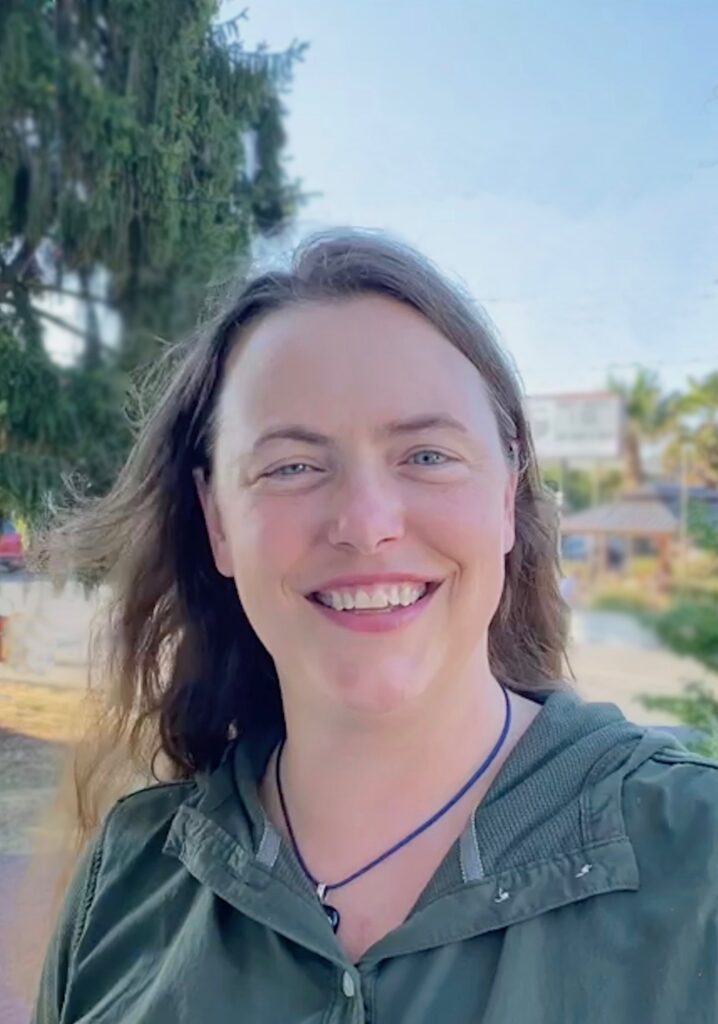Molly Wils on: Head Teacher
on: Head Teacher
Molly is a great example of what early education is all about. Being a Co-op Preschool alum, she is excited to come full circle and contribute to the same nurturing community that she enjoyed as a child. She has a masters in education and has taught at the Co-op for over 10 years. Molly is the Co-op’s beloved head teacher and teachers the 2-3, 3-4, and 4-5(Pre-K) classes. She is thrilled to work with children and their parents during this exciting time of development. Molly’s experience of working with children has reinforced her belief in the importance of the relationship between teachers, parents and their children. Children are drawn to her warm, happy and energetic personality. Molly is as excited to teach her little students as she is to learn from them.
Tami Brockway Joyce: Tots Teacher, 3/4 and 4/5 Parent Educator
Tami has been a Co-op mom, board member, and even a Co-op kid once upon a time. Working with kids has always brought inspiration, from teaching creative dramatics and The Boys & Girls Club to being a Big Sister through Big Brothers/Big Sisters (Tami and her little sis have been together since 1999!). Tami holds a Bachelor of Arts in Theatre from the University of Washington and has completed specialized training in birth doula work, massage therapy, and infant massage instruction. Since 2020, she has taught Parent Education classes through North Seattle College and currently serves as Board President of the DOVE Project. As a parent of two VMCP alumni, Tami understands the cooperative experience from both sides and is passionate about helping families build supportive communities while developing practical parenting skills. When not working with families, she co-hosts The BROADcast with The Famous Filson Sisters and enjoys forcing her teenagers to play board games with her and her husband.
Kara Hill: 2/3 Parent Educator

Kara is a certified teacher, licensed mental health counselor, and parent coach. Her love for teaching sprouted out of a High School internship program where she had the opportunity to work in a nearby elementary school. Since then, she has worked with youth and families in the public school system, in-patient psychiatric care, non-profit elementary schools in West Africa, outdoor programs, community mental healthcare, and in private practice. She has Bachelor’s degrees in Developmental Psychology and Education from CWU, and a Masters in Psychology from Seattle University. Kara also brings her training in Positive Discipline (Sound Discipline) and the intuitive process of Children Focusing (Focus Centrum Zeeland) to her teaching. She has taught parenting workshops both locally and to international audiences. One of Kara’s special interests is working with parents who know they want to parent differently than what they experienced themselves growing up. She helps parents identify their strengths, understand intergenerational patterns, and build authentic, meaningful relationships with their kids.
Teaching Overview
All the teachers at our Preschool are governed by the (NAEYC) National Association of the Education of Young Children’s core values:
- Appreciating childhood as a unique valuable stage of the human life cycle (and valuing the quality of children’s lives in the present, not just as preparation for the future).
- Basing our work with children on knowledge of child development (and learning)
- Appreciating and supporting the close ties between the child and family
- Recognizing that children are best understood in the context of family, culture, and society
- Respecting the dignity, worth, and uniqueness of each individual (child, family member and colleague)
- Helping children and adults achieve their full potential in the context of relationships that are based on trust, respect and positive regard. (Feeney & Kipnis 1992,3)
They also follow NAEYC’s guidelines for developmentally appropriate practice which are:
- Creating a caring community of learners
- Teaching to enhance development and learning
- Constructing appropriate curriculum
- Assessing children’s learning and development
- Establishing reciprocal relationships with families
